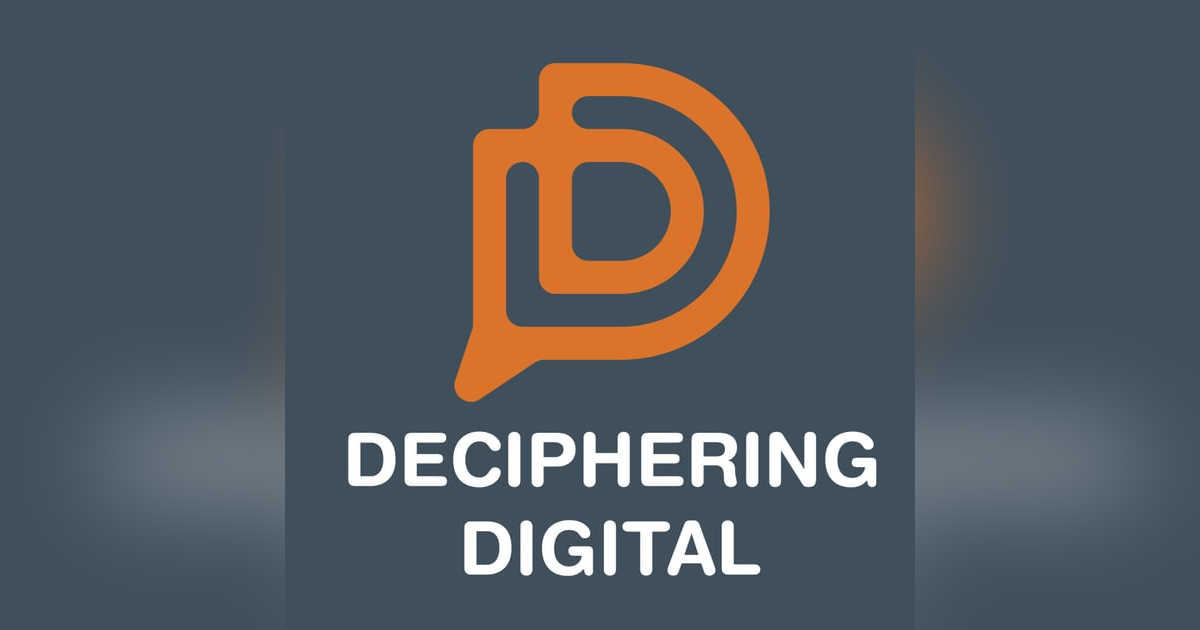Ep 1 - Decoding E-E-A-T for SEO Content Strategy with David Yarian
David Yarian will share his expert insights into how thought leadership content can be used effectively to establish and enhance E-E-A-T. Together, we will explore strategies to showcase expertise, build online authority, and ensure great content is authentic and helpful particularly as AI is used to research and write copy.
This insightful conversation will also touch upon a number of topics along the way including the best ways to create content, different techniques to structure content, ways to measure the impact of E-E-A-T strategies on search rankings, and how to adapt to Google's helpful content algorithm updates moving forward in the ever-changing world of SEO (and AI).
In the ever-evolving landscape of search engine optimization (SEO), Google continually refines what it takes to stand out. Enter the concept of E-E-A-T, an acronym that extends beyond the traditional E-A-T (Expertise, Authority, and Trustworthiness) by adding an extra 'E' for Experience. This new criterion is not just a passing trend; it's a transformative approach to how we create and evaluate online content.
The Evolution of E-A-T to E-E-A-T
David Yarian, a leading voice in the world of SEO, shed light on E-E-A-T during a recent webcast hosted by Chuck Aikens. Yarian humorously described E-E-A-T as a "really bad, annoying acronym," but quickly acknowledged its significant role in Google's algorithmic ballet.
Google's algorithms aim to mimic human judgment, ranking content not just for relevance but for the value it offers to users. E-E-A-T is Google's way of ensuring that content isn't just factually accurate, but also comes from a place of deep understanding and positive user experience.
Unraveling the Mysteries of E-E-A-T
- Expertise: Are you knowledgeable in your field? Google wants content created by people with the necessary skills and knowledge.
- Experience: What unique perspective do you bring? Your hands-on experience can make your content more relatable and valuable.
- Authority: Do others in your field recognize you as a leader? External signals like backlinks and citations from reputable sites are key.
- Trustworthiness: Can users trust your content? Transparency, accuracy, and a solid reputation are non-negotiable.
Strategies for Showcasing E-E-A-T
Yarian emphasizes the importance of thought leadership content in establishing E-E-A-T. To do this effectively:
- Showcase your expertise and experience by sharing in-depth insights that go beyond surface-level information.
- Build authority by contributing to respected publications and participating in industry conversations.
- Maintain trustworthiness by ensuring your content is accurate, up-to-date, and transparent.
The Role of AI in E-E-A-T
The webcast also touched upon the growing influence of AI in content creation. As AI tools become more prevalent in researching and writing copy, the challenge is to ensure that the content remains authentic and helpful. Yarian discussed strategies to keep AI-generated content aligned with E-E-A-T principles, ensuring that it meets Google's quality standards.
Measuring the Impact
Measuring the impact of E-E-A-T strategies on search rankings can be complex. Yarian and Aikens explored ways to assess the effectiveness of your efforts, from tracking keyword rankings to analyzing user engagement metrics.
Adapting to Google's Algorithm Updates
Google's algorithm updates, particularly those related to helpful content, demand that SEO strategies be fluid and adaptable. Yarian provided insights on staying ahead by focusing on content that genuinely helps and informs users, rather than simply aiming to rank well.
Conclusion
Understanding and implementing E-E-A-T is crucial for anyone looking to thrive in the digital space. It's about crafting content with genuine expertise, authority, trustworthiness, and a layer of experience that resonates with your audience. As Yarian aptly points out, it's not just about playing to the algorithms—it's about enriching the user's journey with knowledge.













